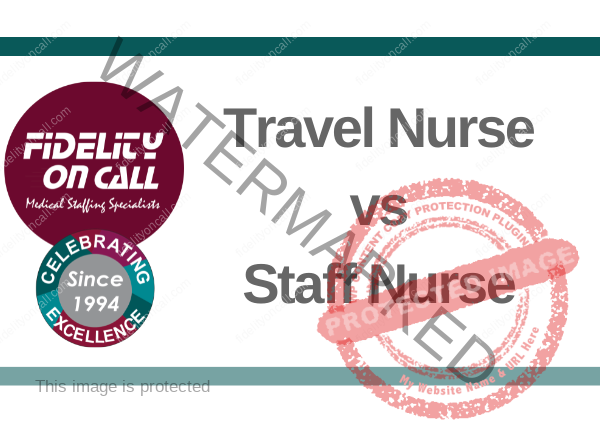Comparing a travel nurse to a staff nurse is really like comparing an apple to an orange. Both are fruit, both are good for your health, but each still has differences.
TRAVEL NURSES:
✔ Enjoy the change in environment (typical change in assignments every 13 weeks; you may be offered to extend, or you can move onto the next location)
✔ Experienced in their nursing skills (travel nurses are not new graduates)
✔Adaptable (outside of showing a travel nurse the charting system and the lay of the land, travel nurses receive little orientation)
✔Exceptional interpersonal skills
✔Above average attendance records
✔Financially savvy to save for their own PTO/Vacation time and live a more flexible lifestyle
✔Flexible (you can choose the shifts you wish to work and the time off you want to take off)
✔Enjoys the perks of travel pay (competitive wages, tax free allowances)
STAFF NURSES:
✔Prefer to see the same nurses, techs, and providers day in and day (the only change is the patient)
✔Enjoys team meetings, unit committees
✔Likes a short or familiar commute to work
✔Typically receive lower pay but earn paid time off
✔Seniority matters
It is important when determining what is right for you, to always ensure you are choosing the right travel nurse agency to support you and/or the hospital that aligns with your mission in healthcare. Both offer several opportunities! Just remember you are never locked into one or the other. You have a career that has flexibility and opportunities.






